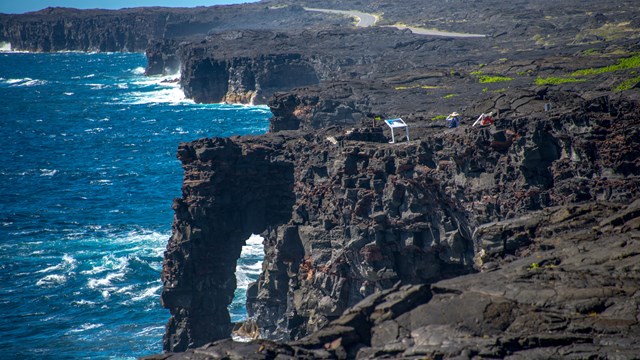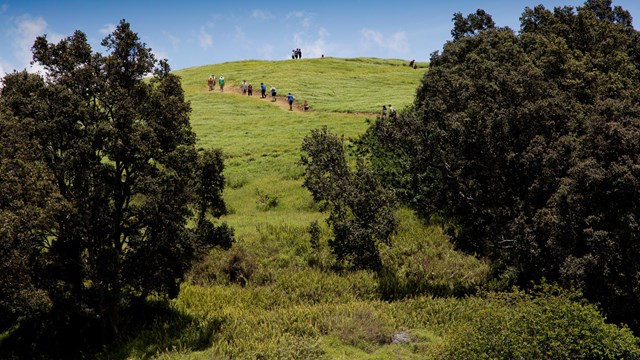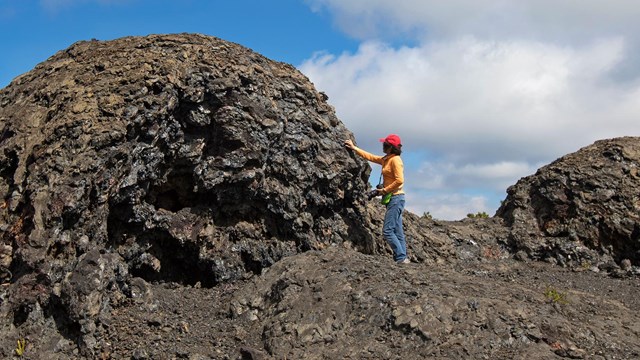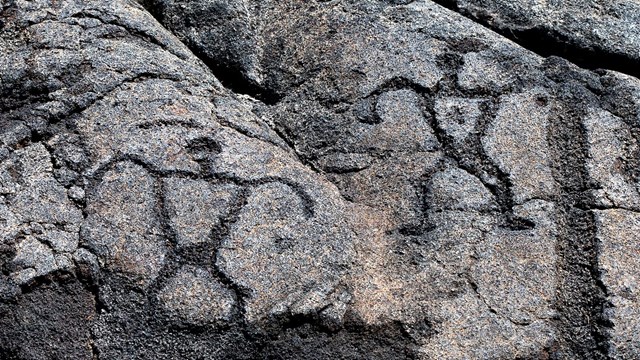Expect Area Closures and Delays at Hawaiʻi Volcanoes National ParkHawaiʻi Volcanoes National Park has entered a two-year construction project to repair, improve or remove damaged buildings and infrastructure at the summit of Kīlauea, the most popular area in the park. Expect delays at the entrance station, temporary area closures, and limited parking. Delays and lack of parking can be severe during periods of high visitation, such as during eruptions and the busy months of December, January, Spring Break, June, July, and August. The construction project includes:
Are you a frequent park visitor? Bookmark this page and check back before each visit for the latest closure updates. Construction ScheduleConstruction is following a dynamic schedule to allow for flexibility and adjustment for the constantly changing conditions at Kīlauea. The dates highlighted in yellow are subject to change.
To access a version of the park map that is accessible, please visit the Maps webpage.
Frequently Asked Questions Hawaiʻi Volcanoes National Park will remain open 24 hours during the construction, however access to overlooks and parking lots at the summit of Kīlauea may be temporarily delayed during periods of intense visitation, especially if an eruption occurs. Visitors and tours will be directed to other areas in the park including sites along Chain of Craters Road and Mauna Loa Road.
The project began in January 2024 and is expected to last up to two years.
It depends. Eruptions are impossible to predict and can occur throughout the park. When an eruption is happening, check the park home page prior to your visit to find out the best viewing locations and options.
Construction will be concentrated at the summit of Kīlauea, a relatively small area of the park. Plan to explore destinations away from the summit such as Chain of Craters Road, Maunaulu, Puʻuloa, and Mauna Loa Road. Also, don't overlook Kahuku! It's just a one-hour drive southwest of the Kīlauea summit, situated on the ma uka (uphill) side of Highway 11 near mile marker 70.5.
To reduce congestion and disperse visitors to less-crowded locations, the park may adjust services at the visitor center. Park rangers will be stationed at alternate overlooks and parking areas to provide information, and traffic control staff will direct visitors to less-congested areas in the park. In addition, vehicles more than 25 feet long and 8 feet wide will not be able to access Uēkahuna until the deconstruction and overlook repairs are complete, which may take almost two years to complete. The large vehicles are not allowed past Kilauea Military Camp, but can still access Kīlauea Visitor Center and Steam Vents parking lots. Jaggar Museum will not be rebuilt. Guidance from the park’s General Management Plan was used to analyze the potential options, after which the NPS received public and consulting party feedback during the Environmental Assessment review period. Instead, Kīlauea Visitor Center will be rehabilitated and redesigned during Phase Two of the construction period to accommodate the lost visitor services provided at Jaggar Museum.
The park is restoring a more culturally appropriate experience at Uēkahuna, considered by Native Hawaiians and other groups as a sacred area. The buildings will be removed but some of the original stone masonry and low rock walls will remain. Interpretive displays will be minimal as to not impede the panoramic views.
Visit our keyboard shortcuts docs for details
We appreciate your patience and understanding throughout the construction period. 
Welcome Center
Visit the Welcome Center for visitor information and the park store. 
Chain of Craters Road Tour
A spectacular drive down the slopes of Kīlauea to the sea 
The Kahuku Unit
Kahuku is a place of dynamic volcanism, rich Hawaiian traditions, and a fascinating history of ranching. 
Maunaulu
Explore the 1969-1974 lava flows of Maunaulu and hike to the top of Puʻuhuluhulu Cinder Cone. 
Pu'uloa Petroglyphs
Hike across a lava field to the largest group of petroglyphs in Hawaiʻi. |
Last updated: November 19, 2025
